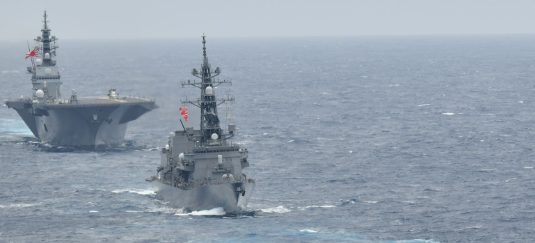Manila (Web Desk/Agencies): Defence forces of the US, Japan, Australia and the Philippines will conduct “maritime cooperative activity” on April 7 to support a free and open Indo-Pacific, the countries said on Saturday.
The one-day maritime exercises will involve communication activities and officer of the watch manoeuvres in Manila's exclusive economic zone (EEZ) in the South China Sea, Philippines' defence ministry spokesperson Arsenio Andolong told reporters.
Littoral combat ship USS Mobile, Australian frigate HMAS Warramunga and Japanese destroyer JS Akebono will join two Philippine warships, Andolong said.
“They will go from south going to the north encompassing the boundary of western and northern command,” he said.
The activity will strengthen the interoperability of the countries’ armed forces doctrines, tactics, techniques and procedures, the joint statement read.
The four nations have reaffirmed their position that the 2016 South China Sea Arbitral Tribunal Award is final and legally binding.
The maritime activity takes place days before a summit between the leaders of Japan, the US and the Philippines, which will include a discussion of recent incidents in the South China Sea.
Since taking power in 2022, Philippines President Ferdinand Marcos Jr. has pursued warmer ties with the US and other western nations and adopted a tough line against what he sees as Chinese hostility, turning away from his predecessor's pro-Beijing stance.
The Philippines and China had several maritime run-ins last month that included the use of water cannon and heated verbal exchanges, and have triggered concern about an escalation at sea.
China’s embassy in Manila did not immediately respond to request for comment.
Beijing claims sovereignty over almost the entire South China Sea, which rankled neighbouring countries that dispute some boundaries they say cut into their exclusive economic zones.
Brunei, Malaysia, Taiwan, and Vietnam have competing claims of sovereignty in portions of the South China Sea, a passage through which $3 trillion in goods move every year.


